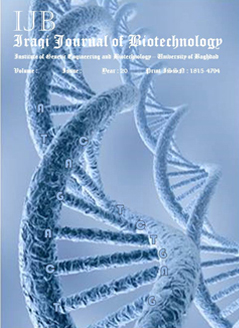Review: Genetic Alterations of Hodgkine's Lymphoma
Abstract
Lymphoma refers to cancer that developed in the lymphatic system. This type of tumor cause swelling in the lymph nodes and other parts of body. There are 35 different type of lymphoma recognized by WHO,five of them are belong to Hodgkin,s lymphoma(HL) and other subtypes belong to non Hodgkin lymphoma. Approximately 85% of lymphoma incidences are non-Hodgkin’s disease and 15% are Hodgkin lymphoma. Early epidemiologic data suggested that HL develops among persons with a delayed exposure to a ubiquitous infectious agent, Epstein-Barr virus (EBV). A sound of biological basis association has been established between the genetic regions and risk of HL including some chromosomes and genes such as chromosomes 2, 6, 8, and 10 and REL and GATA3 genes. In HL there are no known specific simple genetic aberrations that would appear to be necessary for the malignant transformation. Alterations of chromosomes 2p, 3q, 6q, 7q, 9p, 13p, 14p and 17q are found more frequently than expected. Several breakpoints are detected non-randomly in HL, including 3q27, 6q15, 7q22, 11q23, 14q32, but translocation partners have not yet been identified. FISH studies performed with these samples led to the identification of gene amplifications, i.e. amplifications of the JAK2 gene on 9p23–p24 and the MDM2 gene on 12q14.


